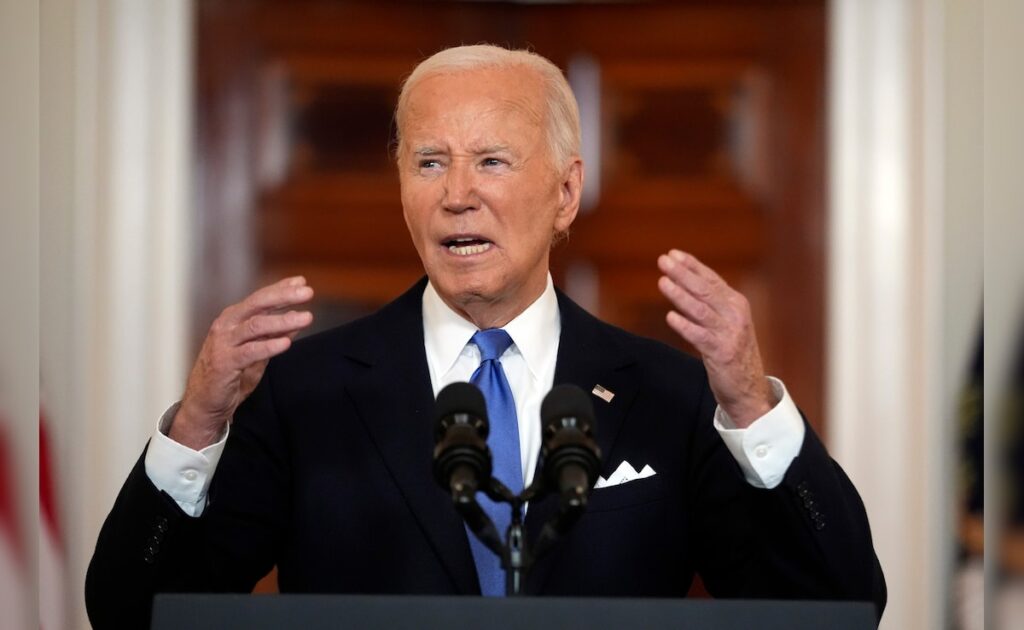56 years ago, a US president appeared on television, shocked the nation, and announced that he would not seek reelection. His name was Lyndon B. Johnson, the most recent US president to not run for a second term. The reasons were manifold.
Johnson, then US vice president, assumed the highest office following the assassination of then-President John F. Kennedy in November 1963. A year later, he led the Democratic Party to a landslide victory in the presidential election polls.
But after he presided over the deeply unpopular Vietnam War, that all changed. Despite being the Democratic nominee in 1968, his poor health, plummeting approval ratings, and approach to the war all worked against him. Johnson decided it was time to make way for someone else.
Fast forward to 2024, and the reelection of another US president is at stake – this time Joe Biden – as he faces growing calls from within his party to withdraw from the presidential race. Leading Democrats in the House of Representatives have questioned Biden's fitness to be president and his chances of winning in 2024, citing concerns about Biden's health and his ability to stand up to Donald Trump.
Despite the mounting pressure, Biden remains defiant and insists he will continue his campaign, but will his determination be enough to overcome growing opposition to his candidacy?
On Sunday, a group of Democratic lawmakers including Reps. Adam Smith, Jerry Nadler, Mark Takano and Joe Morrell met to discuss the future of the party. Sources say they all agreed that President Biden should withdraw from the presidential race. This was echoed openly by Rep. Adam Smith in an interview with CNN on Monday, where he also called on Biden to withdraw.
Congressman Angie Craig urged President Biden to drop out of the presidential race after an interview with ABC News reporter George Stephanopoulos, citing Biden's disappointing debate performance and his lack of a strong response after the debate.
Reps. Mike Quigley and Seth Moulton have joined the chorus of Democrats calling for President Biden to withdraw from the presidential race. In an interview with MSNBC's Chris Hayes, Quigley said Biden's only way to protect his legacy and prevent disastrous consequences is to step down.
Meanwhile, Seth Moulton, in an interview with WBUR in Boston, said he wasn't confident in Biden's ability to defeat Donald Trump in November and called on Biden to “step back and allow a new leader to emerge.”
Representatives Lloyd Doggett and Raul Grijalva were the first sitting Democrats to call on President Biden to withdraw from the race. Doggett said he was disappointed that Biden did not defend his record and expose Trump's lies during the debate, while Grijalva said it was Biden's “responsibility” to step down. Former Housing and Urban Development Secretary Julián Castro joined in calling for Biden to withdraw and suggested Vice President Kamala Harris as a suitable successor to the Democratic nominee.
President Biden's performance in the first debate was widely criticized, with many saying he appeared weak and confused. He struggled to speak clearly, stammered, gave incomprehensible answers, and often seemed lost. Even Trump's critics agreed that Biden's performance was disappointing.
The day after the debate, in a speech in Raleigh, North Carolina, Biden told the crowd he wasn't as agile as he used to be. “I don't walk as lightly, I don't talk as smoothly, I don't debate as well,” he said. “I know what I know, and I know how to tell the truth!”
Today's Featured Video
Senna's phone call to his son after BMW crash resembles Porsche's big scandal

